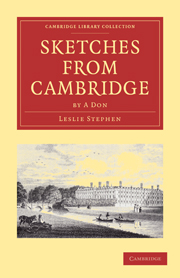Summary
A transition from physical to intellectual exercise may appear somewhat violent. If I do not mistake, however, there is a closer analogy than might at first sight be evident between the directions taken by our muscular and cerebral energy. To go no further, we expend a great deal of both upon objects intrinsically useless, and, moreover, their uselessness is often put forward as a recommendation. We don't learn rowing or cricket with a view to turning them to practical account. We are not about to set up as watermen or professional bowlers. A man may occasionally find his youthful accomplishments profitable; as, for example, in starting as a billiard-marker; but it is not likely that that was his primary aim in learning billiards. We are quite content if we have had our fun, won our little meed of glory, and incidentally developed our muscles. Now, apologizing beforehand to philosophers, nothing can be less generally useful than cricket, except mathematics. As an amusement it is first-rate. A man may spend a happy life in cultivating an almost indecent familiarity with curves of the higher orders, in investigating extravagant formulæ, and in exhausting all the letters of all known alphabets to express his discoveries. So he may in playing whist, in solving chess problems, or unravelling Indian puzzles. As a mere intellectual toy, mathematics is far ahead of any known invention.
- Type
- Chapter
- Information
- Sketches from Cambridge by a Don , pp. 31 - 43Publisher: Cambridge University PressPrint publication year: 2009First published in: 1865

